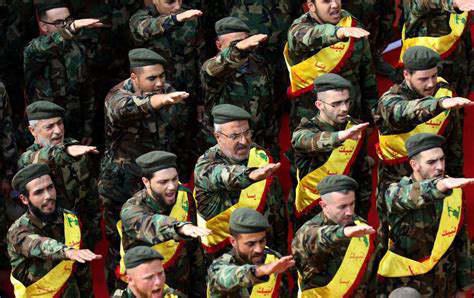
Exposing Hezbollah’s lies
Israel successfully thwarted Hezbollah’s and Iran’s attempts to launch suicide drones from the Syrian village of Aqraba, located some 15 kilometers (9.3 miles) from Israel’s border, at vital targets inside the country on Aug. 24. And yet, the transnational Shiite composition of the terrorist squad behind the attempt could portend what we might expect in a third Lebanon war.
Iran and Hezbollah are not ready for a war with Israel at this time. But had it succeeded, the anti-tank attack could have resulted in a widespread Israeli response and led to a military confrontation on the northern front. Their failed plan served to once again demonstrate how Hezbollah acts in Iran’s interests and is willing to risk both fatalities and destruction inside Lebanon in the service of its patrons in Tehran.
In Lebanon, there is, at least formally speaking, a government-backed system that is backed politically and economically by the administration of US President Donald Trump. This system, alongside UNIFIL, has broad international support.
These elements do not want war with Israel, but time and again, they are proven to be minor actors on Lebanon’s stage. It is Hezbollah that controls the political and security arena in Lebanon.
Hezbollah would like to be seen by the Lebanese public as the defender of the entire nation, and not just as an emissary of the Shiite community. Nevertheless, it is already known among many circles in Lebanon, including quite a few in the Shiite sector, as a burden.
Israel has an interest in seeing Hezbollah’s image in Lebanon continue to erode and for pressure on the organization to increase. One of the biggest threats to Hezbollah’s reputation is the exposure of secrets that could reveal to the Lebanese public to what extent the organization is acting in opposition to its stated goals, and how its haughty statements of opposition to Israel are in effect pledges of absolute loyalty to Iranian interests. This, it should be noted, is in direct opposition to the policies of the Lebanese government, which aspires to neutrality in the face of the crises plaguing the region.
One major secret Hezbollah has kept for many years now concerns its decision to join the Syrian civil war, which Iran and the organization has consistently claimed served the interests of the international, and as a result, the Lebanese community. Had Iran and Hezbollah not joined the fighting, they argue, the Islamic State group would continue to control the country and threaten global and Lebanese security. Keep in mind, Hezbollah leader Hassan Nasrallah has consistently fostered the narrative that the Shiite group entered Syria of its own volition, as part of a defensive war aimed at protecting Lebanon from the terrorism of the Islamic State group.
According to this narrative, the war in Syria is not a popular uprising against the Syrian regime but an American-Israeli conspiracy, within the framework of which groups that are identified with global jihad, comprising tens of thousands of terrorists, were brought to Syria from all over the world.
But Nasrallah’s claims that his organization entered Syria by choice are incompatible with the testimony of the deputy commander of the Revolutionary Guards in Tehran province. In an interview with state-aligned media, he revealed that in a meeting with an Iranian delegation, Nasrallah had said he did not want to enter the campaign in Syria and explained that Iran’s Supreme Leader Ali Khamenei had convinced and in fact forced him to do so.
The decision to take part in suppressing the popular uprising against Syrian President Bashar Assad was one of the most difficult decisions Hezbollah has made since it was established in 1982. Nasrallah and other senior Hezbollah officials are fostering a false narrative that holds that the decision was independently made and aimed largely at serving Lebanon’s interests. Israel is in possession of information that could interest Lebanon’s citizens and its Shiite community in particular. It could disprove Hezbollah’s false narrative and force it to confront the version of events revealed by its patrons in the Revolutionary Guards. It is quite possible that this will also serve to reveal the names of Hezbollah operatives killed in the organization’s activities in Yemen, something that will further deepen the image crisis the organization would face. The time may have come for Israel to use the information at its disposal in order to remove the mask from the organization that is terrorizing Lebanon.
Source: Israel Hayom





